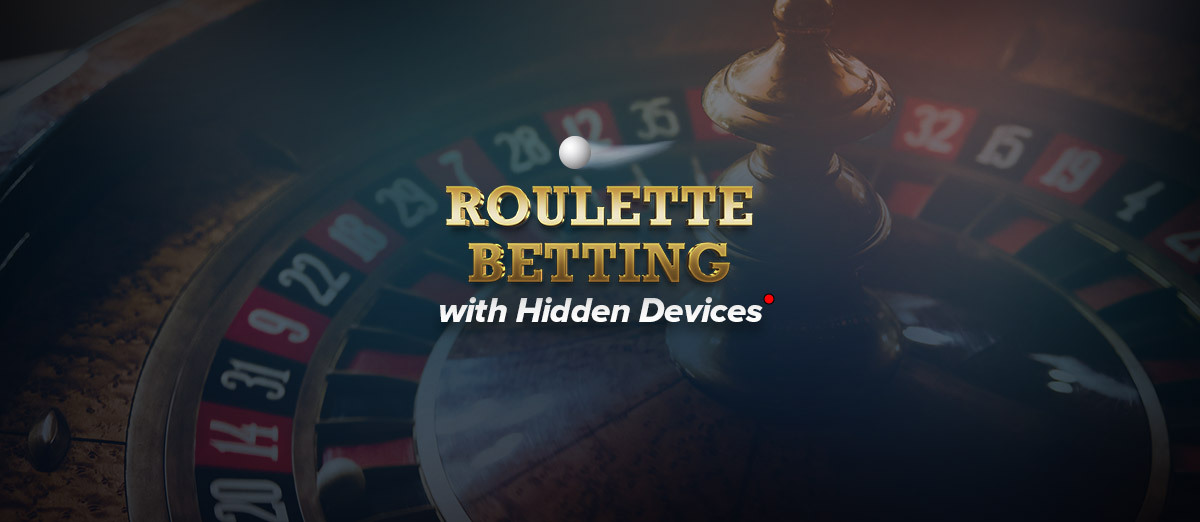Roulette Advantage Play – The Imperfect Solutions of Hidden Devices

The idea of using concealed devices may seem like a cure-all for problems that advantage players must overcome when trying to beat the house, but in fact, hidden electronics introduce a new dimension of issues and concerns that professional teams must solve to avoid losing a fortune or getting caught.
As a card counter, the mental gymnastics required to follow every card while maintaining a running count may seem daunting at first, but thanks to experience and practice, even an advanced count can become second nature, making it easier to pretend you're more interested in watered down cocktails than cards being dealt and shuffled. Many neophyte counters quickly look for "easier" options and, as I have previously discussed, often fall foul of online scams and bogus systems before either giving up or going back to practicing with an eight-deck shoe.
Roulette players might be intrigued by the idea that many wheels can be predicted with modern software and technology, but when they learn the reality of how that technology needs to be operated, it soon seems like no one could possibly go to those lengths just to beat a casino game.
And therein lies the advantage players' greatest weapon: The assumption that extreme amounts of work or effort would be too much trouble for anyone seeking to beat the house.
Advantage Play in Roulette with Devices – The Benefits
Advantage play is all about hard work; expert teams understand that devices create new problems that require more effort to solve and then employ without being dragged into a back room, but the rewards can be worth the added effort since devices offer greater accuracy and long-term analysis of both games and players.
For example, the roulette system designed by an associate of mine (let's call him "BL") had many advantages, such as the (then) new technology of Bluetooth that allowed multiple PDAs to communicate around a table and relay information to players who were on the same team but pretending not to know each other.
Using a tiny button sewn into the lining of his jacket, BL would record the speed of a roulette ball as it was snapped around the inside of the tub, then switch to recording the speed of the rotor, which was spinning in the opposite direction. He had practiced doing this for years with earlier versions of this device using software he had designed himself, but there were several factors that made this system challenging to play (and win).
Challenges for Advantage Play with Devices
First, he had to have a clear view of a fixed point on the wheel and would click the button as the ball passed that point, giving the speed of the ball to the PDA in his pocket before he switched to recording the single zero on the wheel as it passed that same point so that the PDA had both the speed of the wheel and the ball based on a known point on that wheel (more about that fixed point in a moment).
No matter how quickly the ball was fired along the inside rim of the roulette tub, it would soon reach a common velocity (for all spins) from which it would slow and fall at a predictable rate. After clocking, first the ball and then the wheel, BL would then continue clicking the hidden button as the ball passed that fixed point on the tub, and the computer would send a signal to BL's earpiece that it had a prediction while at the same time sending that prediction to one or two other players who were ready to make bets.
This is the part that separated these determined advantage players from the common herd.
Those other players now had to cover (bet) up to nine numbers in a segment of the wheel where the computer had predicted the ball would land. Nine numbers in a row on the outer edge of a roulette wheel that needed to be memorized in patterns so the players could pass their hands over the layout, dropping bets like finely tuned industrial robots - and all of this had to happen before the dealer called "no more bets"!
Preparing for this type of system takes a lot of work and practice, and before real money can be invested, the players need to play under fire for many hours to hone their skills and prove they can get those bets down in time. More importantly, the spotter needs to develop uncanny accuracy as they click that button while at the same time not appearing to be having a stroke as they stare into the roulette tub!
Just to practice this requires access to an industry-standard roulette wheel, a duplicate layout to match the game you intend to hit, and countless hours of practice. If the casinos hadn't lost so many times to professional teams of expert players over the years, I'm certain they would still dismiss all of this as highly unlikely.
That said, it's extremely rare for any team of players to co-ordinate so well and so effectively, and I'm sure that if the entire gaming industry could magically summon the numbers for how much was lost to poorly played systems and how much was won by expert teams clocking vulnerable roulette wheels, the casinos would still be far ahead of the game.
But we're not done with problems to be overcome.
Reduced Accuracy in Roulette Prediction
Finding a predictable wheel is far from guaranteed. Modern rotors no longer have steep wooden cones in the center, which force balls quickly down into the numbers making prediction a lot easier. Nowadays, wheels tend to have shallow cones that allow a ball to cross over the rotor any time that ball bounces, and while this can still be beaten, it reduces accuracy.
More importantly, not every wheel has a reliable "drop zone" where the ball will almost always fall from the inner rim and into the rotor. This drop zone is the "fixed point" that the spotter must use when recording the ball and the single zero as they pass.
Some dealers just don't kick the ball fast enough when they spin and call "no more bets" sooner than they should, which can kill a team's profit margin, even on a hot wheel. In fact, casinos that suspect their wheel is being clocked can simply call off all bets as soon as the ball is released, but as many players will tell you, they like to place their bets once the outcome is "in the hands of fate."
Or, as advantage players like to call it: "Determined by physics."
Natural Distractions Caused by Other Players
Then there's the natural distractions of live play that can easily interfere with the spotter's task, and BL often told me the worst thing that could happen during a profitable session was a chatty player who wouldn't shut up while he was trying to work!
Solutions to these problems required thinking on multiple levels.
Solutions to Roulette Advantage Play Issues
Software was rewritten to accommodate multiple spotters so teams would rotate tasks, taking turns to clock the wheel and make bets, so one player wasn't always so fixated on the spinning wheel and ball. Teams would often "Pavlov" dealers, rewarding them with bigger tips to subtly influence them, and would monitor shift patterns to avoid troublesome dealers who interfered with the desired order of play.
Another factor was fatigue. Accuracy would decline the longer a team played, so software was added to analyze player accuracy. After a spin, the result would be fed into the PDA, and the program would learn how "off" a player had been in their inputs and then adjust subsequent predictions accordingly. This improved accuracy considerably, and the program could even detect when players were getting too tired and tell the team to take a break!
This was all in the nineties and early noughties, and since then, technology has advanced to allow many more methods of input to much bigger processors contained in now-common items that everyone carries (and no longer need to be strapped to one's ass).
Regardless of modern innovations, the human factor remains the same, and the solutions required are all too similar, but hidden cameras can now clock a wheel perfectly from multiple changing angles and heights, and while these cameras were once bulky and obvious, they have now reached a size and quality in line with the Mission Impossible movies that inspired them.
But even with a hidden camera in your glasses that's connected wirelessly to a secret processor hidden in your patently ordinary cell phone and sending coded vibrations to multiple players around a target Roulette table; such a team will have many other problems to solve and consider before they win a dime at that table.
Consider lighting, movement, blocking, image quality, bandwidth, processing time, comms detection, interference, ball size, dealer variables, bet detection, player intrusion, and twenty other issues that will make themselves known as soon as you hit the casino floor.
It's hard to believe anyone would go to all that trouble, isn't it?
Read more:





Review this Blog
Leave a Comment
User Comments
comments for Roulette Advantage Play – The Imperfect Solutions of Hidden Devices